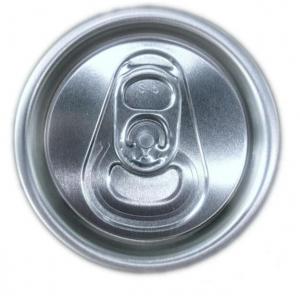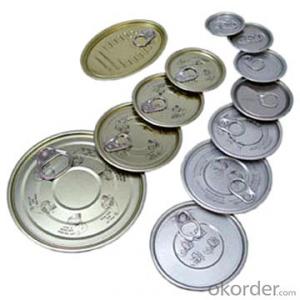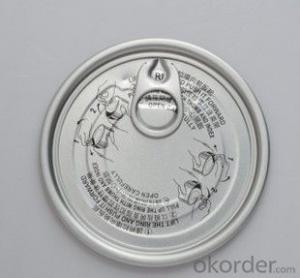Mill Finished Aluminium Coil for Can End
- Loading Port:
- China main port
- Payment Terms:
- TT or LC
- Min Order Qty:
- 100000 PCS
- Supply Capability:
- 10000000 PCS/month
OKorder Service Pledge
OKorder Financial Service
You Might Also Like
Item specifice
1.Specification
ALLOY:AA5182,AA5052
TEMPER:H19, H29
THICKNESS:0.22-0.26mm
WIDTH:600-1800mm
Special specification is available on customer's requirement
2.Description
5182 and AA5052 aluminum coil is an aluminum alloy that is commonly used in the production of can end. This aluminum alloy is ideal for the production of can end materials due to its excellent formability and corrosion resistance.
3.Pictures
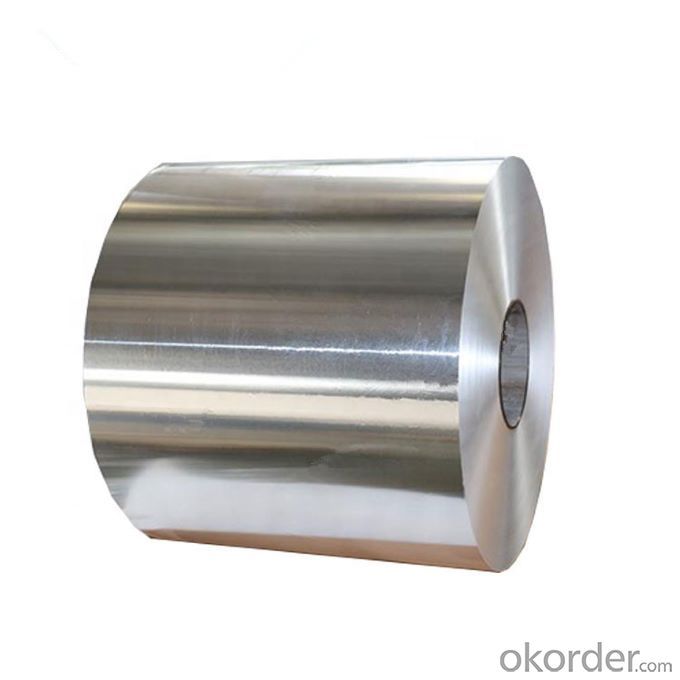
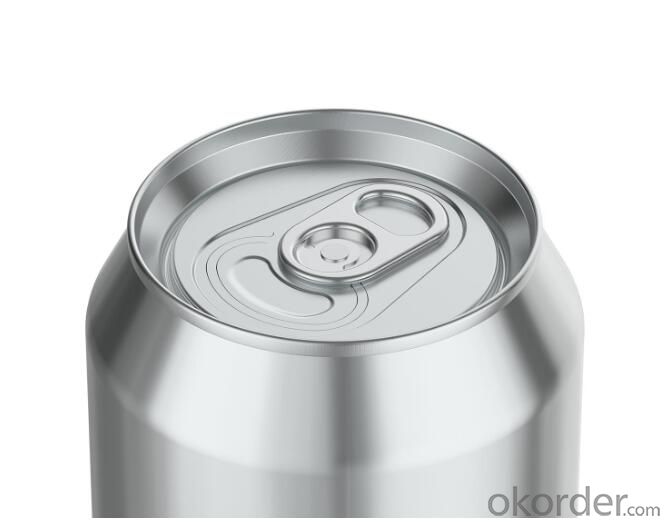
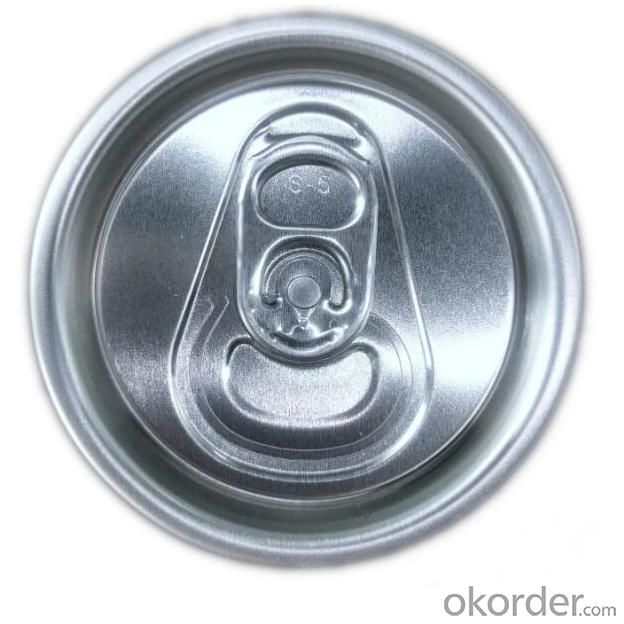
4.Professional Quality Control Team
Inspect ingot before melting
Inspecting aluminium coil /foil stock before cold rolling
Inspecting finished goods before package
Inspecting package, loading before shipment
5.Certificates
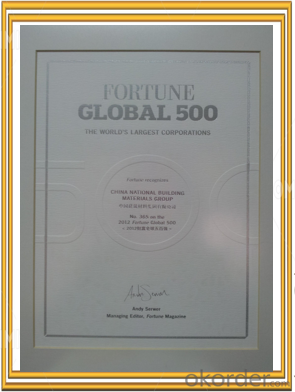
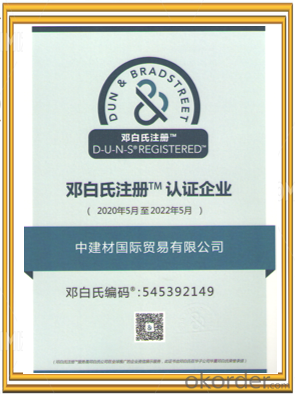
- Q:helicopters rotorblades are made of honeycombed aluminum to give them strength, so isn't it a good idea for automakers to use the same technology to strengthen the frames of autos to make them lesslikely to cave in during a side impact auto accident?
- Cost is everything - if they get enough design margin from a single sheet that is the choice. Especially in fabrication costs. Besides cars are designed to crumple and a honeycomb structure may be too strong to dissipate crash forces as the body deforms in an accident. Aerospace uses that structure for light-weigh performance and can literally eat the extra cost.
- Q:A bit of a question for the 1911 experts roaming around here. Per-say someone, who knew their way around a 1911 built one on an aluminum frame. To top it all off, if the finished gun were to be chambered in .38 super... how long would this combination last? I've heard horror stories about aluminum frames, and then I've heard some wonderful things... this question was to see if anyone had ever thought about/done this sort of thing before. Something tells me that Aluminum + .38 super wouldn't last too long... Most informative answer gets the ten point prize as usual.
- Aluminum might be corrosive resistant but it is softer than a stainless steel frame. It might be possible to shoot .38 super regular loads through it but any .38 super + P might cause a catastrophic failure of the weapon. Just my opinion.
- Q:How are aluminum coils processed for specific thicknesses?
- Aluminum coils are processed for specific thicknesses through a series of manufacturing steps. The process begins with the casting of molten aluminum into large ingots. These ingots are then rolled out into thin sheets using a hot rolling mill. The first step in achieving the desired thickness is hot rolling. The aluminum sheet is passed through a series of heated rollers that gradually reduce its thickness. This process is repeated multiple times, with the sheet being reheated between each pass. Hot rolling allows for the sheet to be elongated and thinned out. After hot rolling, the sheet may undergo a process called cold rolling. Cold rolling involves passing the hot rolled sheet through a set of cold rollers. This process further reduces the thickness and improves the surface finish of the aluminum. Cold rolling also increases the strength and hardness of the material. Next, the sheet is annealed, which involves heating it to a specific temperature and then allowing it to cool slowly. Annealing helps to relieve any internal stresses and improve the overall ductility of the aluminum. Once the desired thickness is achieved, the aluminum sheet is typically cut into coils using a slitting machine. The coils can then be further processed or used in various applications, such as in the manufacturing of automotive parts, packaging materials, or building construction. Overall, the process of processing aluminum coils for specific thicknesses involves hot rolling, cold rolling, annealing, and slitting. These steps ensure that the aluminum sheet meets the required thickness specifications and is ready for further use in various industries.
- Q:Are aluminum coils suitable for electrical grounding applications?
- Yes, aluminum coils are suitable for electrical grounding applications. Aluminum is a highly conductive material, with approximately 61% of the conductivity of copper. It is commonly used in electrical applications where conductivity and corrosion resistance are important factors. Aluminum coils provide a cost-effective alternative to copper coils for grounding purposes. Additionally, aluminum coils are lightweight and easy to work with, making them a popular choice for electrical grounding applications. However, it is important to ensure proper installation and maintenance to prevent any potential issues like galvanic corrosion when connecting aluminum to other metals.
- Q:Can aluminum coils be used for gutter systems?
- Yes, aluminum coils can be used for gutter systems. Aluminum is a popular material for gutters due to its lightweight nature, durability, and resistance to rust and corrosion. Aluminum coils are often used to form seamless gutters, which offer advantages such as fewer leaks and a more aesthetically pleasing appearance. Additionally, aluminum gutters are easy to maintain and can be painted to match the exterior of a building. Overall, aluminum coils are a suitable and commonly used choice for gutter systems.
- Q:Can aluminum coils be used in electrical transmission systems?
- Yes, aluminum coils can be used in electrical transmission systems. Aluminum is commonly used as a conductor in power transmission due to its low resistance, lightweight, and cost-effectiveness. However, it requires a larger cross-sectional area compared to copper to carry the same amount of current.
- Q:How are aluminum coils used in the production of signage and displays?
- Aluminum coils are commonly used in the production of signage and displays due to their versatility and durability. These coils are typically used to create the framework or structure of the signage or display, providing a sturdy base. They can be easily shaped, cut, and formed into various designs and sizes, allowing for customization and creativity. Additionally, aluminum coils are lightweight, making them easy to handle and install. Their corrosion resistance also ensures that the signage or display remains intact and visually appealing even in outdoor or high-moisture environments.
- Q:Can the displacement sensor be used for real-time measurement of the aluminum coil thickness?
- You are suggested to use eddy current displacement sensor KD2306 to measure aluminum.
- Q:Four roller rolling mill roller bearing on the aluminum top how always have holes, in the production process, will be printed on just above the work roll, the work roll used in less than a day, it will produce a pothole, and aluminum plate will be printed from the upper supporting roller above the straight line, the line in the above there are holes.
- Well, typical aluminum plate surface defects in the backup roll print, solution, change support roll.
- Q:How long do aluminum coils typically last?
- Aluminum coils typically have a lifespan of around 15 to 20 years. However, the longevity of the coils greatly depends on several factors such as the quality of the aluminum used, the installation process, and the maintenance and care provided. Regular maintenance, such as cleaning the coils and ensuring proper airflow, can significantly extend their lifespan. Additionally, environmental factors like exposure to harsh weather conditions and corrosive substances can also affect their durability. Therefore, while aluminum coils have a decent lifespan, it is essential to provide proper care and maintenance to ensure their longevity.
1. Manufacturer Overview |
|
|---|---|
| Location | |
| Year Established | |
| Annual Output Value | |
| Main Markets | |
| Company Certifications | |
2. Manufacturer Certificates |
|
|---|---|
| a) Certification Name | |
| Range | |
| Reference | |
| Validity Period | |
3. Manufacturer Capability |
|
|---|---|
| a)Trade Capacity | |
| Nearest Port | |
| Export Percentage | |
| No.of Employees in Trade Department | |
| Language Spoken: | |
| b)Factory Information | |
| Factory Size: | |
| No. of Production Lines | |
| Contract Manufacturing | |
| Product Price Range | |
Send your message to us
Mill Finished Aluminium Coil for Can End
- Loading Port:
- China main port
- Payment Terms:
- TT or LC
- Min Order Qty:
- 100000 PCS
- Supply Capability:
- 10000000 PCS/month
OKorder Service Pledge
OKorder Financial Service
Similar products
New products
Hot products
Related keywords
